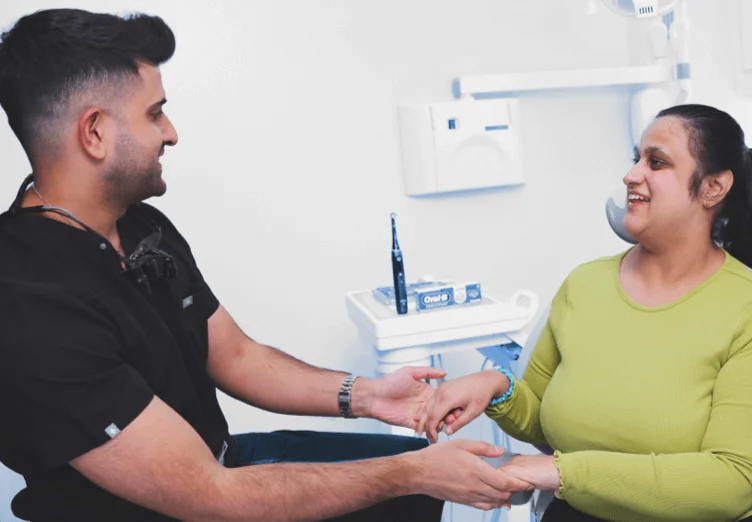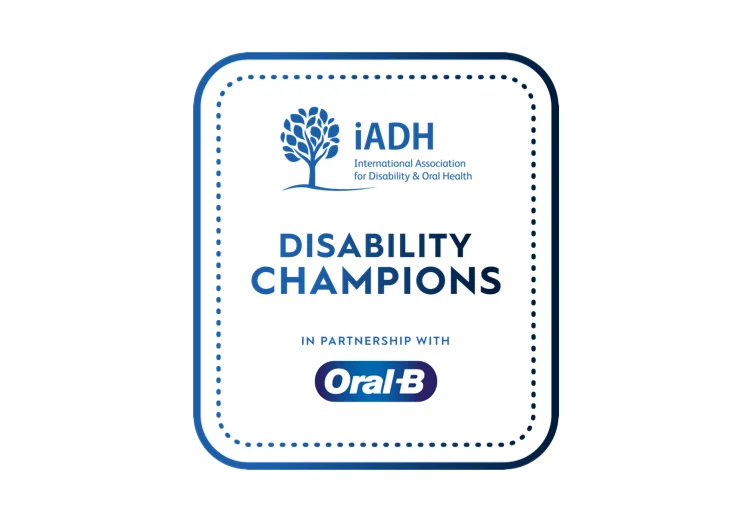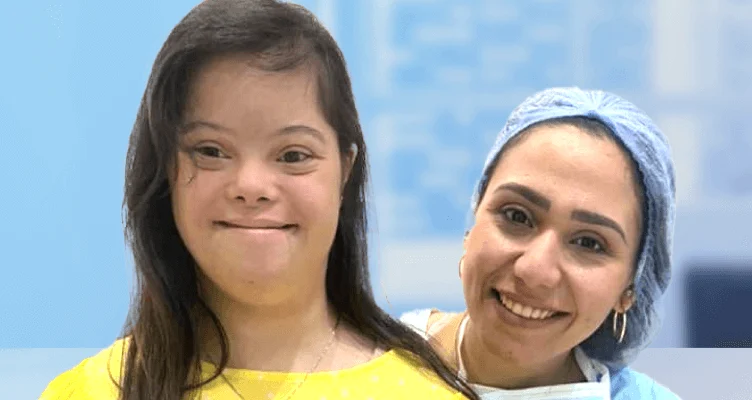

CHAMPIONING ACCESSIBLE ORAL CARE FOR ALL
We’re committed to rethinking and transforming the oral care experience to make it more inclusive, accessible and positive for those with visible and non-visible disabilities, their caregivers, oral care professionals, and everyone in-between.

Introducing…
DISABILITY CHAMPIONS
To build more disability positive practices, we need individuals within the practice that are committed and dedicated to our mission as well. In partnership with the International Association for Disability & Oral Health (iADH), Oral-B are encouraging every practice to appoint a Disability Champion, someone who will provide a personal lead and commitment to championing accessibility and opportunity for disabled patients within their practice. Everyone deserves equal care and sometimes all it takes is one person to truly make a difference…

FIND YOUR NEAREST DISABILITY CHAMPION DENTIST
Locate practice with dedicated Disability Champions in your area

BECOME AN IADH AWARDED DISABILITY CHAMPION
Be the lead in facilitating accessibility and opportunity for disabled patients within your practice.
SEE SUPPORT AND RESOURCES FOR
- PATIENTS
- ORAL CARE PROFESSIONALS
